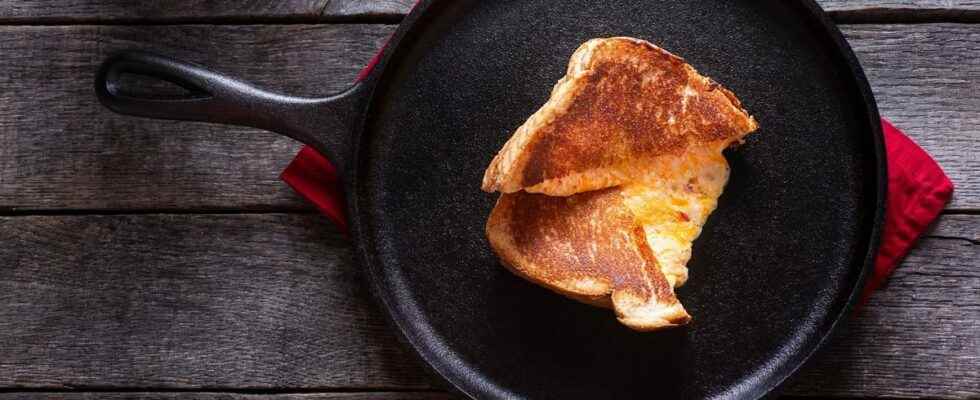Published on
Updated
Reading 2 mins.
Simple scratches on a frying pan could release millions of microplastics into a meal, researchers say.
Like the kettle or tupperware, Teflon pans are part of our daily lives. Practical and easy to wash, they cook food without sticking. However, Teflon does not only have qualities: it is part of the family of “eternal chemicals” presenting a real danger to health. And for good reason: according to a new study published in Science of The Total EnvironmentTeflon would release thousands of plastic particles.
Up to 2.3 million particles released in a meal
To measure the amount of microplastics (less than 5 millimeters in size) and nanoplastics (millions of times smaller) released by our nonstick pots and pans, researchers used Raman spectroscopy – a technique for analyzing molecular structure .
They also used bespoke algorithms to calculate how much plastic is likely to peel off and end up in our food.
The scientists then cut the Teflon-coated kitchen utensils into small pieces and simulated a cooking process (lasting 30 seconds flat) using record players (stainless steel, wool, wood, etc.).
Results ? A damaged pan or saucepan releases up to 2.3 million tiny particles during the preparation of a meal, according to the researchers.
“Since per- and polyfluoroalkyl substances (PFAS) are a big concern, these Teflon microparticles in our food could be a health concern.“, warns Cheng Fang, materials scientist at the University of Newcastle in Australia.
Researchers do not know, however, how often these particles can be released in our meals. Further work must therefore be carried out.
“More research needs to be done to better understand the risk assessment of microplastics and nanoplastics in Teflon, a member of the PFAS family.“, emphasizes Youhong Tang, materials engineer at Flinders University in Australia.
NO to diets, YES to WW!
Old pans should be thrown away
Until we know more, the research team recommends banishing old pots and pans from your cupboards.
“It is essential to be rigorous in the selection and use of kitchen utensils to prevent food contamination“, concludes Youhong Tang.
Finally, to preserve the coatings, no sharp objects (such as knives) should be used in a frying pan or saucepan.
